
views
X
Research source
Clothes and household textiles made from rayon have a similar look and drape to cotton, but they may weaken when they're wet and have a tendency to shrink. They can also bleed colour easily and will wrinkle a great deal following washing. Taking care of them requires special considerations, but if you know in advance what your fabric needs, you can keep it strong and looking good for some time to come.
Washing Rayon

Read the label prior to purchase. Many rayon garments are hand wash or dry-clean only. Check the label to see if your rayon purchase is washer-safe. If it is not, know that you will have to put in extra effort to care for the fabric. Some rayon composite fabrics won’t require hand washing or dry-cleaning. If you prefer machine-washable fabrics, look for pieces that are a combination of rayon and a sturdier fabric, such as cotton. Handle with great care during laundering due to the fragility of rayon. Rayon can even dissolve during laundering, so it's finickiness needs to be taken into account.
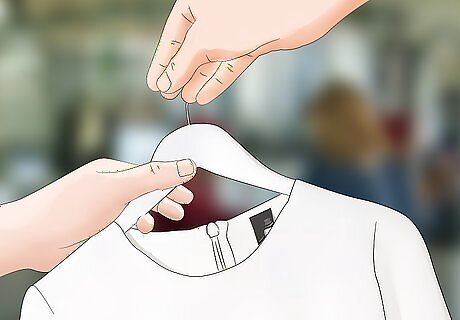
Have the fabric dry cleaned. One of the easiest ways to care for rayon is to have it dry-cleaned. Take your rayon garment into a professional cleaner, and let them know that you are looking for help caring for your rayon garment. Know that dry cleaning can add up. A shirt may cost anywhere from one to five dollars depending upon your location and your cleaner, while something like a blanket or quilt might cost up to thirty dollars.
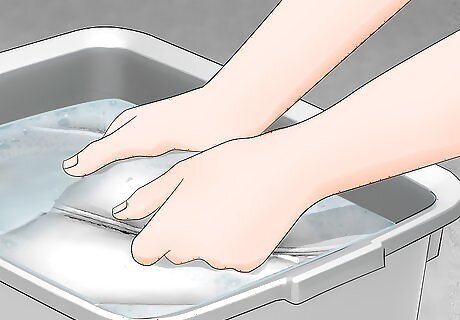
Hand wash your rayon. Your tag will tell you what, exactly, you need to take care of your rayon piece. The general standard, though, is a mild detergent and warm water. Fill a clean sink or basin with water slightly above room temperature. Add a mild detergent, such as one that says it is made for delicate fabrics. Soak your rayon fabric in the basin until it completely wet. Then, gently swirl your fabric around the basin using your hands. Avoid harsh or rapid movements, such as those that would cause a splash. Agitate your fabric for three to five minutes. Remove the fabric from the basin and rinse under a faucet of warm water until suds stop forming. Gently squeeze the excess water out from the fabric. Avoid harsh wringing and twisting of the fabric.
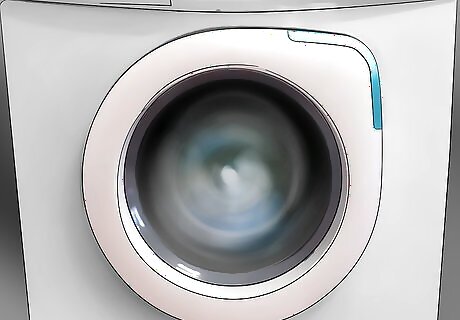
Machine wash. Only machine wash a rayon garment if it says to do so. It will need the short, delicates cycle in your washing machine on a medium to low temperature. Understand that rayon fabric may shrink or deteriorate in the machine, especially if it is not recommended for machine washing.
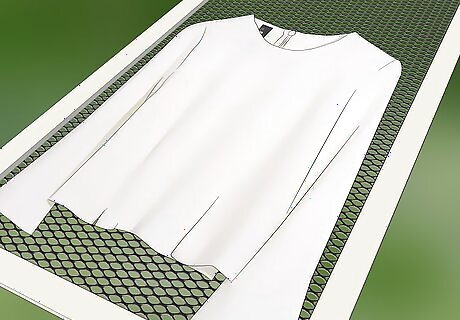
Dry the garment. Dry rayon knits flat. Use a sweater drying cage to drape the rayon over, or lay the rayon over the top of a drying rack so that it sits flat across multiple bars. Woven rayon can be hung to dry. Simply clip to a drying rack or use a hanger. Avoid using a dryer or anything that may tumble the clothes, as this may damage or rip the fabric. A knit fabric will stretch in all directions, while a woven fabric will only stretch diagonally. Try stretching your fabric lightly both side to side and diagonally to tell. If it only stretches diagonally, it is woven.
Smoothing Out Wrinkles
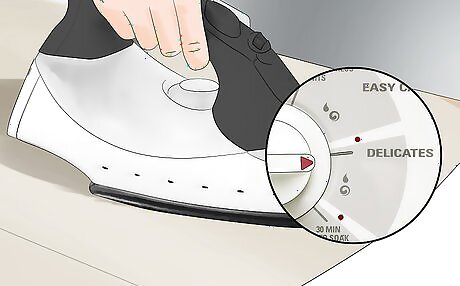
Iron on low heat. Use a low setting on your iron. Higher temperatures may burn the rayon. Iron the piece in sections and avoid pulling on the piece while ironing to prevent misshaping. Turn a rayon garment inside out when ironing, as the area that comes in contact with the iron may develop a slight sheen. Do not use any steam when ironing. Rayon loses strength when wet, and adding steam may make the fabric easier to damage while ironing.
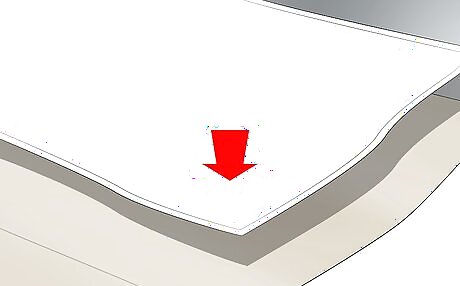
Iron with a protector. If you want to avoid the shine that comes with ironing rayon, iron using a protective barrier. Place a hand towel over the section you intend to iron, and iron the rayon with the towel on top. Only use a clean, heat resistant protective barrier, such as a cotton fabric. Some recommend using aluminum foil, but this can heat the foil and lead to potential burning. Keep the iron set to low. While it may take a little longer to smooth out the piece, adding excessive heat to rayon is still potentially damaging.
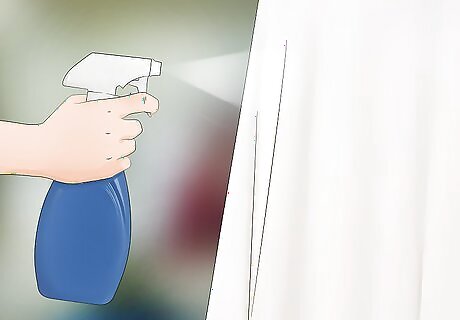
Use a wrinkle-releasing spray. These types of sprays are available at most grocery or home goods stores. They are formulated to work on most types of fabric, and can help get the wrinkles out of rayon without applying heat. Rayon treated with the spray should be set flat until the spray is dry, so as to avoid excess pulling on the relaxed fibers. Always read the label of the spray to see if it states that it is not safe for use on rayon.
Hanging and Storing Rayon
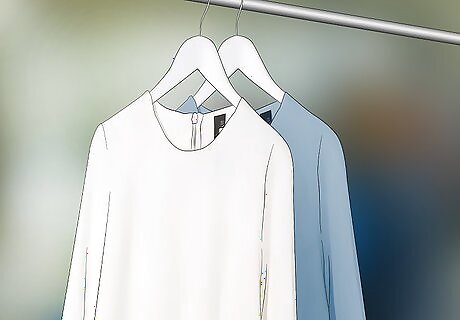
Hang rayon garments. If you have a rayon piece of clothing, store it by hanging it on a sturdy hanger with a good grip. Rayon isn’t really inclined to wrinkle when hung properly, and should be stored vertically to prevent any creasing of the fabric. If you must fold a rayon garment, try to fold along the clothing’s seams, and don’t put too many other items on top of they rayon. This prevents deeper creasing from pressure.
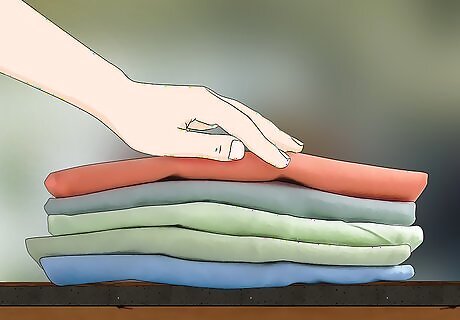
Fold large pieces. For larger rayon pieces such as drapes or blankets, consider investing in a large plastic storage container to help keep the fabric safe and prevent anything from sitting directly on top of the rayon. Fold along the seams of the fabric when possible. Rolling rayon may cause more smaller wrinkles, but may help prevent larger creases to the fabric.
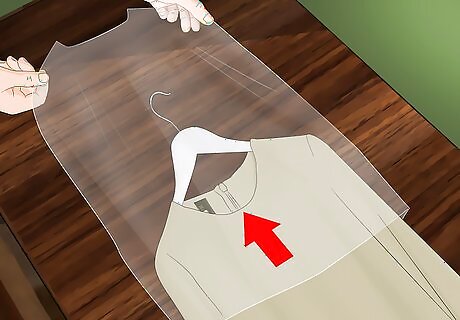
Remove plastic bags. If you have your rayon dry-cleaned, it may come back to you in a plastic dry-cleaning bag. Excess exposure to these kinds of plastics may cause some yellowing of the fabric if left on for extended periods of time. If you prefer to have your rayon piece covered while in storage, cover it with a clean, colorless muslin, or purchase a garment bag meant for rayon storage.




















Comments
0 comment